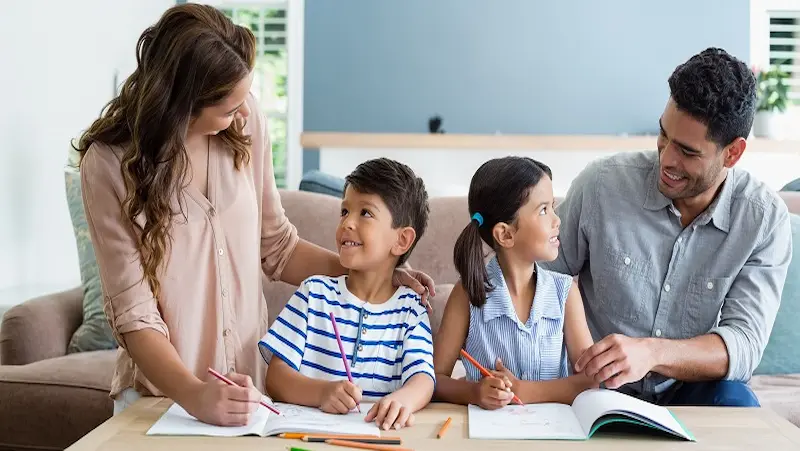3 Best Insights Into Multicultural Parenting Differences
Cultural values heavily shape parenting styles across cultures. Discipline methods vary, with positive reinforcement and consistency playing key roles. Communication in multicultural parenting emphasizes active listening and a blend of verbal and nonverbal cues. Education expectations differ greatly, with some focusing on academic achievement while others prioritize independence and exploration. Understanding these insights sheds light on the intricate web of multicultural parenting differences and how they affect child-rearing practices.
Key Takeaways
- Cultural values influence diverse parenting styles and approaches.
- Discipline methods vary across cultures, impacting child behavior.
- Educational expectations differ, shaping parenting practices globally.
- Communication styles vary, affecting parent-child relationships.
- Multicultural parenting fosters diverse approaches to child-rearing.
Cultural Values Shaping Parenting Styles

Cultural values greatly influence and shape the diverse parenting styles observed across various multicultural communities. Cultural expectations play a significant role in determining the approaches to child rearing within different societies. Traditional practices often dictate parenting norms in many cultures, emphasizing respect for elders, obedience, and collectivism.
In contrast, modern parenting in Western societies tends to focus more on individualism, fostering independence, and encouraging self-expression.
In traditional societies, parents often prioritize discipline and obedience, instilling values of respect and duty in their children from a young age. These cultural expectations influence the way parents interact with their children, setting boundaries firmly and emphasizing the importance of hierarchy within the family unit.
On the other hand, modern parenting approaches in more individualistic cultures often emphasize open communication, critical thinking, and autonomy for children to make their own decisions within a supportive framework.
Understanding how cultural values shape parenting styles can provide valuable insights into the diverse ways in which children are raised across different cultural contexts.
Discipline and Communication Methods

When considering discipline and communication methods in multicultural parenting, varying approaches can be observed across different cultural backgrounds. Positive reinforcement is a common strategy used by many cultures to encourage good behavior in children. This method involves praising or rewarding positive actions to reinforce them.
Active listening is another key aspect seen in many multicultural parenting styles. It involves truly engaging with and understanding your child’s thoughts and feelings, fostering a strong bond and effective communication.
Consistency is essential in discipline across cultures. Setting clear expectations and following through with consequences help children understand boundaries and learn from their actions.
Nonverbal cues, such as body language and facial expressions, also play a significant role in communication in multicultural parenting. These cues can convey emotions and messages that complement verbal communication, enhancing understanding between parents and children.
Education and Future Expectations

An emphasis on education and future expectations is a vital aspect of multicultural parenting practices. Across different cultural backgrounds, academic pressure and career goals play an essential role in shaping how parents guide their children towards success.
Some cultures place a high value on academic achievement, instilling a sense of responsibility and dedication towards education from a young age. This can result in parents setting high expectations for their children’s academic performance and future career paths.
Conversely, the concept of independence and family dynamics also influences how multicultural parents approach education and future aspirations. In some cultures, independence is encouraged early on, with children being pushed to make their own choices regarding their educational and career pursuits. This can lead to a more individualistic approach to goal-setting, where children are given the freedom to explore their interests and passions without significant parental intervention.
Understanding these nuances in multicultural parenting styles regarding education and future expectations can offer valuable insights into the diverse ways in which parents nurture their children’s growth and development.
Frequently Asked Questions
How Do Multicultural Parents Address Holidays and Traditions at Home?
When celebrating holidays and traditions at home, multicultural parents embrace diversity by balancing traditions, promoting cultural inclusivity, and teaching heritage. This approach fosters a rich tapestry of experiences that reflect their multicultural backgrounds and values.
What Role Does Extended Family Play in Multicultural Parenting?
In multicultural parenting, extended family offers valuable support, reinforcing cultural values and shaping parenting styles. Their influence can provide diverse perspectives, guidance, and traditions, enriching the child’s upbringing with a blend of customs and beliefs.
Are There Differences in Mealtime Customs Among Multicultural Families?
In multicultural families, mealtime customs vary depending on cultural food preferences and mealtime etiquette. Understanding and respecting these differences can enhance family unity and appreciation for diverse culinary traditions, fostering a sense of belonging and connection.
How Do Multicultural Parents Navigate Language Barriers With Their Children?
When addressing language barriers with your children, multicultural parents often prioritize language reinforcement to maintain cultural identity. Bilingual education is essential for preserving cultural heritage and ensuring children feel connected to their roots.
What Are the Challenges of Raising Multicultural Children in a Predominantly Monocultural Society?
Raising multicultural children in a mainly monocultural society poses challenges for cultural identity and social integration. Utilize diverse parenting strategies, seek community support, and foster open dialogues to navigate these complexities effectively.
Conclusion
To sum up, understanding multicultural parenting differences can offer valuable insights into the various ways in which cultural values shape parenting styles, discipline methods, communication strategies, and educational expectations.
By recognizing and respecting these differences, parents can cultivate a greater sense of empathy, understanding, and appreciation for the diverse ways in which families navigate the complex terrain of raising children.
Ultimately, embracing these differences can strengthen relationships and promote a more inclusive and harmonious society.

Hey there! 👋 I’m a proud mom and passionate writer, sharing my parenting journey. 📝 Join me as I navigate the ups and downs of motherhood, offering tips, advice, and a sprinkle of humor along the way. 🌟







